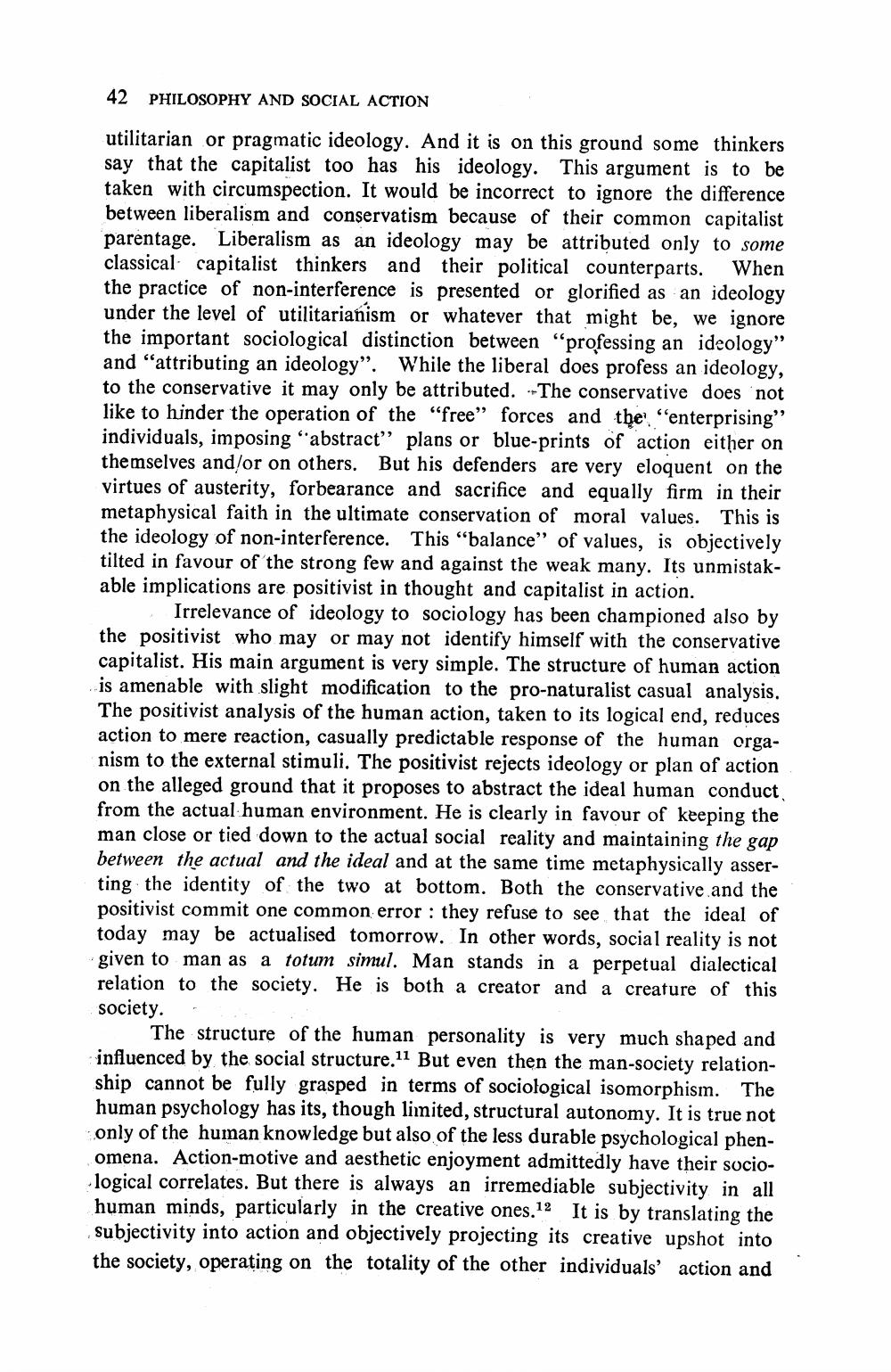Book Title: Matter And Method In Sociology And Ideology Author(s): D P Chattopadhyaya Publisher: D P Chattopadhyaya View full book textPage 4
________________ 42 PHILOSOPHY AND SOCIAL ACTION utilitarian or pragmatic ideology. And it is on this ground some thinkers say that the capitalist too has his ideology. This argument is to be taken with circumspection. It would be incorrect to ignore the difference between liberalism and conservatism because of their common capitalist parentage. Liberalism as an ideology may be attributed only to some classical capitalist thinkers and their political counterparts. When the practice of non-interference is presented or glorified as an ideology under the level of utilitarianism or whatever that might be, we ignore the important sociological distinction between professing an ideology" and "attributing an ideology”. While the liberal does profess an ideology, to the conservative it may only be attributed. The conservative does not like to hinder the operation of the "free" forces and the enterprising" individuals, imposing "abstract" plans or blue-prints of action either on themselves and/or on others. But his defenders are very eloquent on the virtues of austerity, forbearance and sacrifice and equally firm in their metaphysical faith in the ultimate conservation of moral values. This is the ideology of non-interference. This "balance" of values, is objectively tilted in favour of the strong few and against the weak many. Its unmistakable implications are positivist in thought and capitalist in action. Irrelevance of ideology to sociology has been championed also by the positivist who may or may not identify himself with the conservative capitalist. His main argument is very simple. The structure of human action is amenable with slight modification to the pro-naturalist casual analysis. The positivist analysis of the human action, taken to its logical end, reduces action to mere reaction, casually predictable response of the human organism to the external stimuli. The positivist rejects ideology or plan of action on the alleged ground that it proposes to abstract the ideal human conduct from the actual human environment. He is clearly in favour of keeping the man close or tied down to the actual social reality and maintaining the gap between the actual and the ideal and at the same time metaphysically asserting the identity of the two at bottom. Both the conservative and the positivist commit one common error : they refuse to see that the ideal of today may be actualised tomorrow. In other words, social reality is not given to man as a totum simul. Man stands in a perpetual dialectical relation to the society. He is both a creator and a creature of this society. - The structure of the human personality is very much shaped and influenced by the social structure.11 But even then the man-society relationship cannot be fully grasped in terms of sociological isomorphism. The human psychology has its, though limited, structural autonomy. It is true not only of the human knowledge but also of the less durable psychological phenomena. Action-motive and aesthetic enjoyment admittedly have their sociological correlates. But there is always an irremediable subjectivity in all human minds, particularly in the creative ones.12 It is by translating the Subjectivity into action and objectively projecting its creative upshot into the society, operating on the totality of the other individuals' action andPage Navigation
1 2 3 4 5 6 7 8 9 10 11 12 13 14 15 16 17
